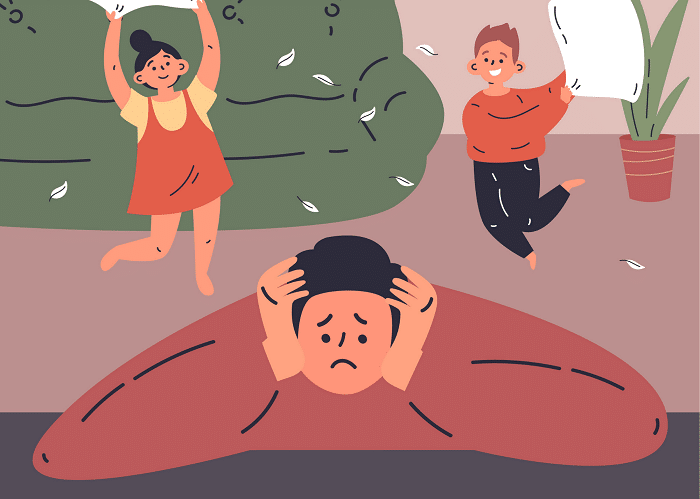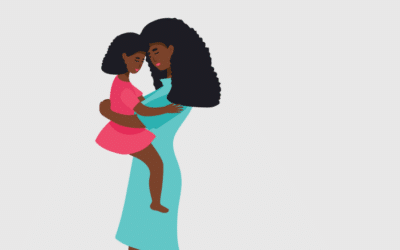So much has changed over the last several months. People have lost their jobs and their savings. Our daily routines have been turned upside down, and many of us are now working remotely. And, for some, the settling in of a new reality has come with feelings of grief and loss.
You see, we’re truly creatures of habit. We thrive on structure and routine. So, when many of us lost the very fabric that wove our lives together, it created a radical shift in our perception. It left many of us craving a return to our lives as they once were.
But, what about the kids? Kids grieve too, and many are also struggling at the moment. Imagine life from their perspective- they’ve lost so much. They’ve lost the structure that physically going to school provided, the ability to see their friends, and the opportunity to maintain social connections. And, don’t forget the fact that they’re cooped up at home like sardines with caregivers who are also stressed, many of which are reaching their breaking points.
Sometimes it’s hard to see when kids are struggling. Our little ones aren’t able to express difficult emotions in the same way that their adult counterparts can. This is in part due to neurological development, but also because they simply don’t have the vocabulary or experience to express their sometimes-complicated emotions.
It is, however, important to recognize when kids are struggling so that we’re able to support them. Right now, many kids need our help navigating the rough waters created by the COVID-19 pandemic.
At this point, you may be asking yourself, “How do I recognize if my child is struggling with complex, difficult emotions caused by grief?” Well, there are several ways that children express these emotions. Below, we will breakdown each of these expressions.
So, without further ado, here are five signs that your child may be struggling with grief.
Anger
Does your child lose their cool over what appears to be the most insignificant things? Maybe they snapped because the TV remote batteries were dead, or, perhaps they revolted because they didn’t get enough chips with their burger?
Sometimes, grief and sadness can be expressed as anger or hostility. This is as true for kids as it is with us. Think about it for a second, do you remember the last time every little thing in your world seemed to set you off?
Anger really is a secondary emotion, and often surfaces as a way to protect us from heavier, harder to process feelings. So, if you’ve noticed your child is often quick to get upset, it may be due to feelings of sadness or grief.
Resistance
It’s hard to keep your cool when your little one refuses to listen or follow through with instructions. But, instead of looking at resistance as a purposeful, defiant behavior, we challenge you to explore the emotions behind it.
Think about the last time you were feeling resistant. Do you remember the feelings that were behind it? Maybe you felt disempowered, disconnected, or out of control?
When our kids are experiencing difficult emotions caused by grief and loss, they can often be expressed through resistance. Put yourself in their perspective, their entire world is out of their control right now. In a heartbeat, their routines were turned upside down. The world that they once drew comfort from was swept away like a rug from beneath their feet.
Displaced Frustration
Does something small, like putting on socks or taking a shower cause your little one to spiral out of control with frustration? If so, it could be the result of them experiencing difficult emotions caused by grief. When children are carrying the burden of heavy emotions, it can lower their threshold for dealing with simple day to day tasks.
To put it into perspective, think about your computer for a second. What happens when you have too many windows open or programs running at the same time? Things move a little slower, and if you push it too far, your computer will simply crash.
While the human brain is a bit more complex than your PC, the principle remains the same. Your child is bogged down from carrying around those hard to handle emotions. So, even the smallest thing can send them over the edge and cause them to decompensate.
Excessive Tiredness
Our physical and mental health are intimately intertwined. Not only is carrying around the weight of grief emotionally draining, it’s also physically draining as well.
The excess stress caused by grief can inhibit children from getting the sleep they need, and generally just wear them down. So, if your child looks tired or is frequently not getting a full night’s rest, you may want to explore the issue further with a physician or a mental healthcare provider.
Seeking Distractions
What’s the first thing many of us do when we’re faced with hard to process emotions? At first breath, a completely human reaction is to seek out distractions. When those distractions aren’t there, we’re forced to face those difficult feelings.
So, if you have a little one who is constantly seeking activities that numb them out, such as screen time, it could be a sign that there’s something bigger happening underneath the surface. This can also come out through an all to common complaint, “I’m bored”.
Now, were not saying that every child who complains that they’re bored or loves their tablet time is experiencing grief and loss. When gauging any of the signs above, you should compare them to what your child’s typical behavior is.
Looking for More Support?
You know your child better than anyone else. If they have one bad day, it may not be indicative of a larger problem. However, if you see an ongoing pattern of behaviors, you should start asking some questions and seek the support of a professional.
It never hurts to get your child evaluated by a therapist or physician. At the very least, a therapist can offer counseling to help support your child through this difficult period.
For those in Montana looking for a counselor, Youth Dynamics provides therapy, as well as a host of other mental and behavioral health services, to Montana kids and families. All of our 30 locations in Montana can be reached by calling 1-406-245-6539 or by contacting us through our website.
Looking for more great parenting tips and hacks for a happy, healthy life? Check out our blog today and don’t forget to follow us at People of Youth Dynamics and Youth Dynamics of Montana on Facebook.






